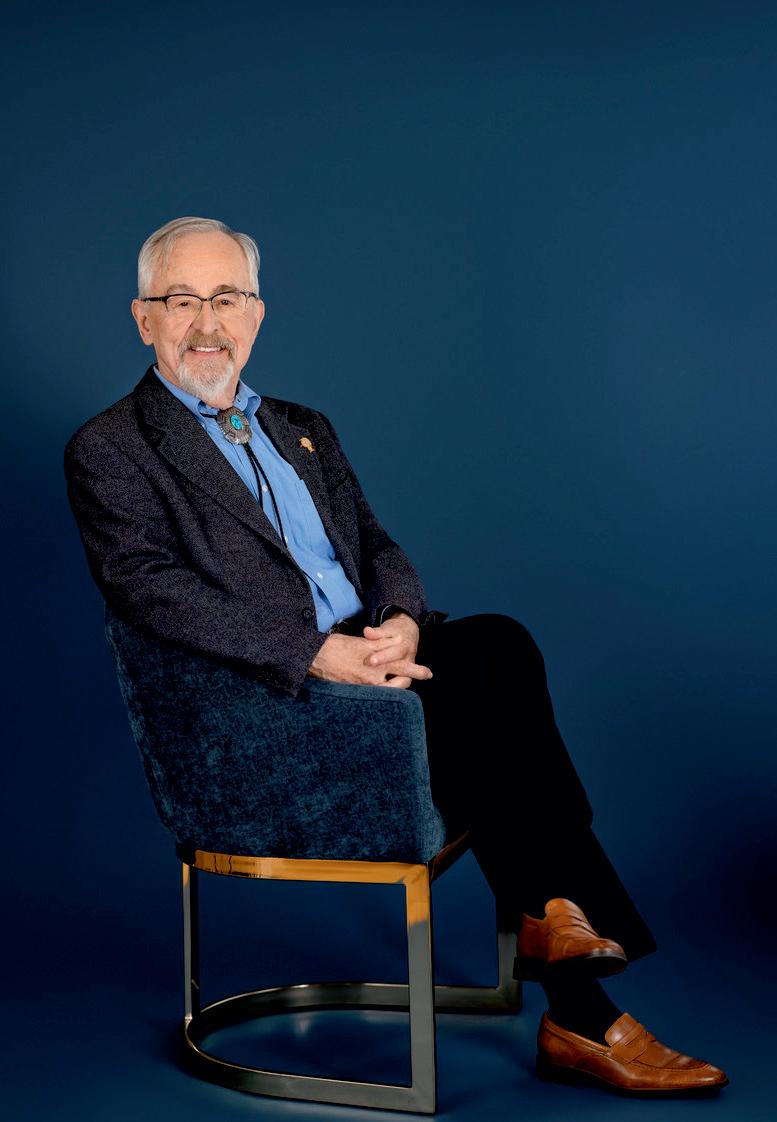


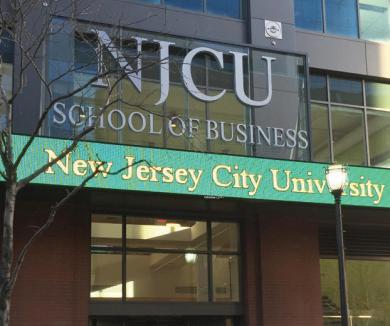
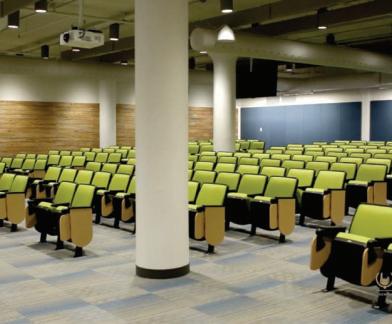
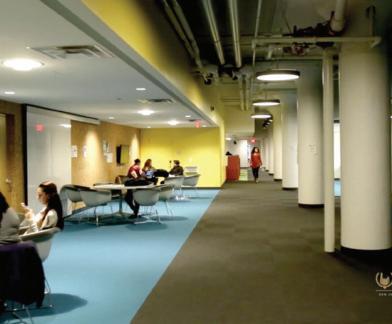

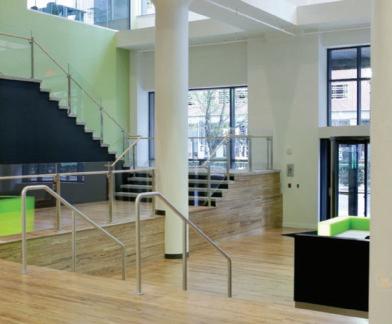
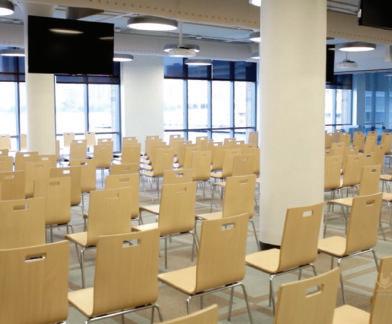












N o t e
Aswestandonthecuspofaneweraineducation, theroleofleadershipinshapingthefutureof learningismorecriticalthanever Theeducation landscapeisevolvingrapidly,drivenbyadvancementsin technology,afocusonsustainability,andanincreasing demandforinclusivity.Theleadersoftomorrowmust possessnotonlythevisiontoguidethistransformationbut alsotheabilitytoadapt,innovate,andinspirechangein complexandoftenunpredictableenvironments.
IntherecenteditionofInsightsSuccess,TheMost ImpactfulLeaderinEducationtoLookforin2025 featuresRichardLarsonwhoisnotonlypushing boundariesbutalsoleadingwithempathy,strategic foresight,andadeepunderstandingofthechallengesand opportunitiesahead.

Richard’scareerasaProfessoratMITismarkedby groundbreakinginterdisciplinaryresearchandacommitmenttoreal-worldapplications.Astrongadvocatefor appliedresearch,heemphasizesthevalueoffieldwork alongsidecomputationalmethods.Heisalsopassionate abouteducation,mentoring,andthefutureofAI,urging scholarstobridgeacademictheorywithpracticalsolutions tosocietalchallenges.
Thiseditionaffirmsthatimpactfulleadershipineducation goesbeyondaccoladesitliesinvision,action,andthe couragetochallengeconvention.Aswemovethrough 2025,leaderslikeLarsonexemplifywhatitmeanstobe transformative:connectingresearchtoreal-worldapplication,mentoringwithintent,andembracinginnovation whilestayingrootedincoreeducationalvalues.
Haveagreatreadahead!



Journey:
on Research, Innovation, and Education
Bridging the Gap The Future of Educa�on in Developing Countries
Leading the Way How Transforma�onal Leadership Enhances Student Engagement The Evolution of a Lifelong











““
As a student at MIT, I initially pursued Electrical Engineering before transitioning to graduate studies in the Operations Research Center. An unexpected personal experience profoundly influenced my academic trajectory—I became indirectly involved in a crime, as professional thieves executed a large-scale theft.”
RichardLarson’sjourneyintoacademiawasfar
fromconventional.AdistinguishedProfessorat theMassachusettsInstituteofTechnology (MIT),hiscareerspansdecadesofgroundbreaking researchandinterdisciplinaryexploration.Hiscontributions toOperationsResearch(OR)anditspracticalapplications haveshapedurbanplanning,policing,andlogistical operationsacrossmultipledomains.Fromhisunexpected entryintoacademiatohispioneeringworkinmodel thinking,Larson'scareerembodiesarelentlesspursuitof knowledgeandreal-worldimpact.
Overtheyears,Larsonhaswitnessedandinfluenced transformativeshiftsineducation,technology,andresearch methodologies.Asamentor,educator,andresearcher,he hasconsistentlychampionedinterdisciplinarycollaboration andthenecessityofapplyingtheoreticalmodelstopractical situations.Inthisconversation,hereflectsonhiscareer,the evolutionofacademia,andthefutureofeducationand artificialintelligence.
Larson'sjourneyintoacademiawasunplanned. “As a student at MIT, I initially pursued Electrical Engineering before transitioning to graduate studies in the Operations Research Center An unexpected personal experience profoundly influenced my academic trajectory—I became indirectly involved in a crime, as professional thieves executed a large-scale theft.” Hiscuriosityaboutcrimeand policingledhimtoindependentlystudycriminology, eventuallycatchingtheattentionofhisadvisor,Professor AlvinW.Drake.
ProfessorDrake’sencouragementallowedLarsonto integratehisnewfoundinterestintohisacademicwork, markingaturningpointinhiscareer.HisPhDthesis, focusedonOperationsResearchmodelingofurbanpolice departments,wasthefirstofitskind.Uponcompletion, ProfessorDrakeextendedanunexpectedoffer:afaculty positionatMIT.Whatwasinitiallyintendedasashort-term roleturnedintoalifelongacademiccareer,spanningover fivedecadesattheinstitution.
“Operations Research, by nature, is an interdisciplinary field, making it a perfect fit for my intellectual curiosity. I have always resisted being confined to a single academic silo, preferring instead to explore diverse real-world applications.” HelikensORtoappliedphysics,focusingon
practicalproblemssuchastrafficflow,packagedistribution, andurbanplanning.Hisresearchtrajectoryhasoftenbeen dictatedbyhisimmediateinterests,rangingfromurban policinginhisearlyyearstocomplexprobabilisticmodels inlaterresearch.
Collaboratingwithgraduatestudents,Larsonhastackledan arrayofchallengesacrossvariousdisciplines.His toolkit—probabilisticmodelingandapplied probability—hasenabledhimtoapproachreal-world uncertaintieswithprecision.Hehasalsoenjoyedteaching coursesatMITthatemphasizethesemethodologies,further embeddingtheirimportanceinmodernresearch.
Larsonhaswitnessedsignificanttransformationsinresearch methodologies,particularlywiththeadventofartificial intelligence(AI)andcomputationaladvancements. However,heremainsanadvocateforfundamentalresearch principles:fieldworkandfirsthandobservation.He emphasizestheimportanceof‘BootsontheGround’ research,arguingthatcomputersimulationsalonecannot replacereal-worlddatacollectionandexperientiallearning.
Heexpressesconcernthatmodernresearchersoftenrelytoo heavilyoncomputationalmodelswithoutimmersing themselvesintheenvironmentstheystudy Withoutdirect engagement,hewarns,modelsriskbecomingdetached frompracticalrealities,diminishingtheireffectivenessin solvingreal-worldproblems.
Larsonpassionatelybelievesthatacademiashouldplayan initiative-takingroleindrivingpracticalinnovation. “As an applied OR researcher, I see no distinction between academic findings and real-world applications. For research to be impactful, it must be grounded in observational learning and practical testing.” He encouragesscholarstostepoutoftheiroffices,studythe systemstheyaimtomodel,anddevelopsolutionsthat addresstangiblechallenges.
LarsonacknowledgesthetransformativepotentialofAI, dataanalytics,anddigitallearningplatforms. “The Internet has democratized education, enabling learners worldwide to access the same content as those in privileged institutions. I have personally leveraged this capability
Operations Research, by nature, is an interdisciplinary field, making it a perfect fit for my intellectual curiosity. I have always resisted being confined to a single academic silo, preferring instead to explore diverse real-world applications.”






“ “
Reflecting on my own experience as a Teaching Assistant, I recall how my advisor’s constructive feedback shaped my academic path. This philosophy has guided my approach to mentoring, ensuring that students learn from their mistakes and continue striving for excellence.”



As an applied OR researcher, I see no distinction between academic findings and real-world applications. For research to be impactful, it must be grounded in observational learning and practical testing.” “ “
through MIT BLOSSOMS, an initiative aimed at enhancing global education accessibility.”
However,healsovoicesconcernsaboutAI’sunintended consequences.Hefearsthatsomeindividualsmay withdrawfromactivelearning,feelingunabletocompete withAI-generatedinsights.Additionally,AI’srolein performingstudents’assignmentsandprofessionals’critical thinkingtasksraisesethicalandintellectualconcerns. WhileAIpresentsimmenseopportunities,italsoposes risksthatmustbenavigatedcarefully
Asaprofessor,Larsonhasmentoredcountlessstudents, emphasizingtheimportanceofhonesty,encouragement, andresilience.Hebelievesthatoutstandingeducatorsmust provideunwaveringsupportwhileholdingstudents accountablefortheirgrowth. “Reflecting on my own experience as a Teaching Assistant, I recall how my advisor’s constructive feedback shaped my academic path. This philosophy has guided my approach to mentoring, ensuring that students learn from their mistakes and continue striving for excellence.”
Interdisciplinarycollaborationhasbeenadefiningfeature ofLarson’scareer AsanOperationsResearchspecialist,he naturallybridgesmultipledisciplines,collaboratingwith expertsfromtraditionalacademicsilos.Whilethese
collaborationshavebeensuccessful,heacknowledgesthe challengesposedbyrigiddepartmentalstructures.The incentiveandrewardsystemsoftraditionalacademiacan sometimeshinderinterdisciplinarywork.Overcomingthese barriersrequiresinitiative-takingeffortandinstitutional support.
Larsonrecognizesthegrowingpressuresfacedby researcherstoday,fromfundingconstraintstopublication demandsandinstitutionalpolicies.HecreditsMIT’s opennesstodiverseperspectivesasakeyfactorinhis successfulcareer.Heencouragesotherinstitutionstoadopt similarpractices,fosteringanenvironmentwherefaculty memberscanexplore,takerisks,andpushtheboundaries ofknowledge.
Reflectingonhisjourney,Larsonhighlightsthreekey lessons:stayingtruetooneself,takingrisks,andprioritizing relationshipswithstudents. “One of my most rewarding projects was co-developing MIT’s ‘Urban Operations Research’course with my colleague, Professor Amedeo Odoni. This course, which later evolved into ‘Logistical and Transportation Planning Studies,’laid the foundation for our co-authored textbook, Urban Operations Research.” Thebookremainswidelycited,demonstratingitslasting impactonthefield.
AlthoughretiredfromhisofficialMITrole,Larsonremains deeplyengagedinintellectualpursuits.Hiscurrentfocusis onpromoting‘ModelThinking’toabroaderaudience.His latestbook, Model Thinking for Everyday Life,publishedby INFORMS,aimstomakecomplexanalyticalconcepts accessibletothegeneralpublic.Hisadvocacyextends beyondacademia,featuringappearancesontelevision, radio,andevenaTimesSquarebannercampaign.
Throughhiswork,Larsoncontinuestoinspirenew generationsofthinkers,researchers,andeducators.His lifelongcommitmenttobridgingtheoreticalresearchwith practicalapplicationsstandsasatestamenttotheenduring valueofinterdisciplinaryinquiryandreal-world engagement.
Educationisapowerfulengineforeconomicgrowth,
socialchange,andpersonal empowerment—particularlyfordeveloping countrieswhosehugeyouthpopulationsandfast-changing economiesholddangerandpromise.Astheworldis reshapedbytechnologyandthedemandsoflaborchange, theeducationofthesecountriesmustchangewithit.The futureofeducationindevelopingeconomiesisdrivenby digitaltransformation,educationinnovation,inclusive policy,andglobalpartnership.Thisarticlehighlightsthe keytrendspropellingthischange,thekeychallengestobe addressed,andthesolutionsneededtobuildrobustand equitableeducationsystemsforthefuture.
DigitalTransformation:
Oneofthehighlyanticipatedtrendsforeducationinthe developingworldisdigitaltransformation.Asmobile technologyhasexpandedandthepenetrationoftheinternet hasbeenontherise,learningplatformsbecameaccessible eventoremotecommunities.Innovationslikemobile classroom,ed-apps,andonlinetutoringprogramsare expandingopportunitiesforstudentstolearnbeyondthe physicalclassroom.
Butthedigitaldivideisanissueofutmostimportance. Broadbandinternetremainsanelitistrequirementforthe majorityofruralanddisadvantagedcommunities.They possessnodigitalskillsorICTinfrastructure.Unlessdrastic investmentsandeffortsaremade,therearehighchances thate-educationwillincreasethedisparitiesratherthan bridgethegaps.Governmentsandstakeholdersshould thereforemakeittheirutmostprioritytodevelopstrong ICTinfrastructureandtrainteachersinabidtoadopt technologyinentiretyinteaching.


Learninginthedevelopingworldisalsobeinginfluenced byemergingmodelsofteachingthatgobeyondthe memorizationmodelandstandardizedtesting.Competencybasededucation,project-basedlearning,andblended learningmodelsaregainingtraction.Thesemodelspromote criticalthinking,collaboration,andproblem-solvinginthe realworld—skillsnecessaryforsuccessinthe21st-century economy.
Apartfromthat,lifelonglearningisbeingtalkedabout increasingly Withshiftingeconomiesandconventional jobsbeingdisplacedbyautomationandAI,upskillingis needed.Developingcountrieswillneedtoconstruct adaptableandfairsystemsthatenableadultlearning, vocationaltraining,andreskillingcoursestoaddress changinglabormarketneeds.
Robustpolicyandgovernancearethefoundationthatwill propeleducationreforms.Themajorityofdeveloping nations'educationreformshavebeenderailedbypoor policyimplementation,underfunding,andpolitical instability.Governmentsmustadoptdata-drivendecisionmaking,sufficientresourceallocation,andtransparencyin accountabilityfornationstobuildeducationsystemswith resilience.
Decentralizationofeducationaladministrationallows communitiestorespondtoeducationpolicybasedontheir ownpriorities.Toimprovethequalityofeducation,schools andcommunitiesshouldbeengagedindecision-making.
Inclusiveeducationisthekeytorealizingthefourth SustainableDevelopmentGoal(SDG4):ensuringinclusive andequitablequalityeducationandpromotinglifelong learningopportunitiesforall.Alldevelopingcountrieshave structurallyexcludedmarginalizedgroupslikegirls, childrenwithdisabilities,andethnicminoritiesfrom attendingschool.
Genderequalityremainsanenormousissue.Evenwith increasedefforts,theenrollmentofgirlshasincreasedinthe lastfewdecades,yetstill,culturalpracticeslikechild marriage,andsecurityissuesinsomepartsoftheworld denythemtheirchanceateducation.Disabledchildren remainbeyondthescopeoftheordinaryschoolsbecause
theylackadequatematerialsandinstructors.
Tocopewithsuchchallenges,inclusivepoliciesmustbe backedbyadequatefunding,teachertraining,andcivic engagement.Aidsintheformoffundingforsecureand accessibleinfrastructure,inclusivecurricula,andsocial protectionprogramsareneededforlearningsettingsthatare equal.
Thefutureoflearninginthedevelopingworldalsorelieson continuedinternationalcooperationandinvestment. Internationalpartnerships,suchasUNESCO'sGlobal EducationCoalitionandtheWorldBank'seducation program,providetechnicalsupport,finance,and knowledge-sharingplatforms.
Public-privatepartnerships(PPPs)havethepotentialto driveinnovationandextendthescopeofbestpracticesin education.Privatesourcesoffundscanbringcapital, technology,andmanagementexpertise,andgovernment canofferthealignmentofnationaleducationobjectivesand equityrequirements.
Supportfromdonorsmust,however,beprioritizedand distributedsothatitallowsformaximumlong-term sustainability.Supportforeducationshouldbeincreasedat thelocalleveltocreateconditionsunderwhichexternal assistanceisconvertedintosustainableprogress.
Educationalreformindevelopingcountriesisnotjust possible—itisaquestionofimperativenecessity With emergingtechnologiessuchasdigitallearningandnew pedagogicalparadigmsredefiningeducationdelivery,the futureinvolvessustainedfocusonequity,inclusivity,and flexibility.Governmentsneedtoplayaleadingrolethrough robustpolicyandinfrastructureinvestment,withteachers, localcommunities,andinternationalpartnersworking togethertoleavenoonebehind.Byembracingan integratedandforward-lookingstrategy,theneweconomies canunlocktheirfullpotentialintheirsocietiesandturn themnotonlyintomoreeducatedsocieties,butalsoenable themtothriveinanincreasinglyglobalizingworld.















Intoday’sdynamiceducationallandscape,fosteringstudentengagementis morecriticalthaneverforacademicsuccessandpersonalgrowth.While curriculumandtechnologyplaysignificantroles,theinfluenceof leadership—particularlytransformationalleadership—cannotbeunderstated. Transformationalleadersinspireandempowerstudentsthroughvision, motivation,andmeaningfulrelationships,creatingenvironmentswherelearners thrive.Thisarticlehighlightskeywaysinwhichtransformationalleadership enhancesstudentengagement,fromarticulatingacompellingvisiontopromoting agrowthmindsetthatsupportsresilienceandself-directedlearning.
Awell-communicatedvisiongivesstudentsasenseofpurpose,helpingthem understandthe"bigpicture"behindtheireducation.Whenlearnersknowwhat they’reworkingtoward—whetherit’spersonalgrowth,futurecareers,or contributingtotheircommunities—theyaremorelikelytoengagefullywith theirstudies.Purposefuelspersistence,especiallywhenacademictasksbecome challengingorcomplex.
Forinstance,aschoolprincipalwhopromotesacultureofacademicexcellence, inclusivity,andinnovationcaninspirestudentstopursuepersonalgrowthand achievement.Byinvolvingstudentsinsettinggoalsandmakingdecisions, leaderscreateasenseofownership,therebyincreasingengagement.
Transformationalleaderscreatevisionsthatresonatewithstudents'owndreams andgoals.Whenstudentsseetheirpersonalvaluesreflectedintheschool’sor classroom’smission—suchasinclusivity,innovation,orsocialimpact—theyfeel astrongeremotionalconnectiontotheirlearning.Thisalignmentencourages intrinsicmotivationandsustainedengagement.
Empoweringstudentsthroughintellectualstimulationshiftsthetraditional dynamicofteacher-centeredinstructiontoamorestudent-centeredapproach. Insteadofpassivelyreceivinginformation,studentsengageininquiry-based activitiessuchasproblem-solving,casestudies,debates,andexperiments.This activelearningprocesspromotesdeeperunderstandingandsustainedengagement asstudentsarementallyinvolvedinconstructingknowledgeratherthansimply memorizingfacts.


Intellectualstimulationchallengesstudentstomovebeyond rotememorizationtoanalyze,evaluate,andcreate.These higher-orderthinkingskillsarenotonlyessentialfor academicsuccessbutalsoincreasecognitiveengagement byencouragingstudentstoconnectconcepts,make judgments,anddevelopinnovativesolutions.Thiskindof mentalchallengekeepsstudentsattentive,invested,and eagertocontribute.
Wheneducatorsempowerstudentstothinkforthemselves, theypromoteintellectualautonomy.Studentsfeelrespected andvaluedfortheirideas,whichbuildsconfidenceand reinforcestheirroleasactiveparticipantsinthelearning process.Thissenseofownershipleadstogreaterpersonal responsibilityand,inturn,higherengagementintheir academictasks.
Transformationalleadershipemphasizesindividualized consideration,whichinvolvesrecognizingandresponding toeachstudent’suniqueneeds,strengths,andchallenges. Byshowinggenuineconcernandempathy,leadersbuild trustingrelationshipsthatcontributetoapositiveschool climate.
Whenstudentsfeelseenandsupported,theyaremorelikely todevelopstrongemotionalconnectionswiththeirschool, peers,andeducators.Thisemotionalengagementtranslates intoincreasedattendance,participation,andpersistencein academictasks.
Educatorswhomodelempathy,activelistening,and collaborationencouragestudentstoadoptsimilarbehaviors. Positiveinterpersonalinteractionsbetweenstudentsand teachers,aswellasamongpeers,createasupportiveand inclusiveclassroomclimate.Whenstudentsfeelrespected andvalued,theyaremorelikelytoengagesociallyand emotionallywiththeirlearningcommunity,leadingto improvedsocialengagement.Theyparticipateingroup activities,collaborateonprojects,andengageinmeaningful discussions.
Consistencyinmodelingpositivebehaviorshelpsestablish apredictableandstablelearningenvironmentwhere studentsknowwhatisexpectedofthem.Whenstudentssee thattheirteachersconsistentlyupholdhighstandardsfor behaviorandeffort,theyfeelmotivatedtomeetthese expectationsthemselves.Thisconsistencybuildstrustand
emotionalengagement,asstudentsfeelthattheirteachers aregenuinelyinvestedintheirsuccess.
Wheneducatorsmodelself-regulation—suchasmanaging theirtime,settinggoals,andhandlingchallenges effectively—studentsaremorelikelytodevelopsimilar self-regulatorybehaviors.Teacherscanfurtherenhance engagementbyencouragingstudentstosetpersonalgoals, tracktheirprogress,andreflectontheirlearning.This encouragescognitiveengagement,asstudentsbecomemore activelyinvolvedintheirownlearningprocesses,striving toimproveandtakeownershipoftheiracademicjourney
Whenstudentsbelievethattheycanimprovethrougheffort, theyaremorelikelytopersistinthefaceofdifficulties. Insteadofgivingupwhenataskbecomeschallenging,they remainengaged,motivatedtofindsolutions,andwillingto trydifferentstrategies.Thisresilienceleadstoincreased timeontask,deeperlearning,andastrongercommitmentto academicsuccess.
Studentswithagrowthmindsetaremorelikelytosetgoals, seekfeedback,andtakeinitiativeintheirlearning.They becomeinternallymotivated,drivenbycuriosityandthe desiretoimproveratherthanexternalrewardsor recognition.Thisintrinsicmotivationnaturallyleadsto higherengagementlevels,bothinandoutoftheclassroom.
Promotingagrowthmindsetencouragesstudentstotake responsibilityfortheirlearning.Theybegintosee themselvesasactiveparticipantsintheiracademicjourney, ratherthanpassiverecipientsofinformation.Thissenseof ownershipincreasestheiremotionalandcognitive investment,makingthemmoreengagedandproactive learners.
Transformationalleadershipservesasapowerfulforcein cultivatingstudentengagementateverylevelofeducation. Bycreatingavisionthatresonates,stimulatingintellectual curiosity,buildingsupportiverelationships,modeling positivebehaviors,andfosteringagrowthmindset, transformationalleadersshapelearningenvironments wherestudentsfeelmotivated,valued,andempowered.As schoolsandeducatorscontinuetoseekstrategiesfor improvingacademicoutcomesandholisticdevelopment, embracingtransformationalleadershipoffersasustainable pathtowarddeeper,moremeaningfulstudentinvolvement.



“Education is the passport to the future, for tomorrow belongs to those who prepare for it today.”


